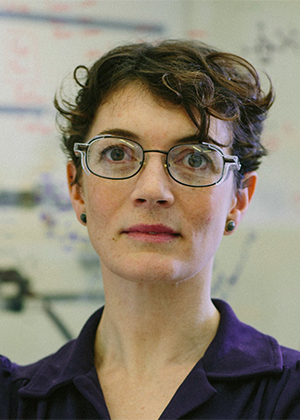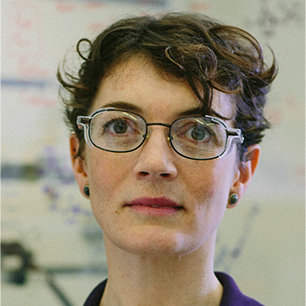
Polly Arnold, Berkeley Lab Chemical Sciences Division Director (Photo courtesy of Polly Arnold)
Prominent heavy-element chemist Polly Arnold has been elected a member of Academia Europaea. Her research focuses on advancing our understanding of the bonding and reactivity of heavy elements, the elements of the f-block of the periodic table. Arnold was recently appointed Chemical Sciences Division Director at the U.S. Department of Energy’s Lawrence Berkeley National Laboratory (Berkeley Lab). Concurrent with her role at Berkeley Lab, she will also join the Chemistry Department faculty at UC Berkeley in January 2020.
Before her appointment as Chemical Sciences Division Director at Berkeley Lab, Arnold served as the Crum Brown Chair of Chemistry at the University of Edinburgh. Among her many other awards and honors, she is also a Fellow of the Royal Society, and was awarded the 2012 Rosalind Franklin Award and Order of the British Empire in 2017 for her outstanding contributions to chemistry and women in STEM.
Founded in 1988, Academia Europaea is a European, nongovernmental association dedicated to the advancement and propagation of excellence in scholarship in the humanities; law; the economic, social, and political sciences; mathematics; medicine; and all branches of natural and technological sciences anywhere in the world for the public benefit, and for the advancement of the education of the public of all ages. Its aim is to promote European research, advise governments and international organizations in scientific matters, and further interdisciplinary and international research.
Academia Europaea’s members are scientists and scholars who collectively aim to promote learning, education, and research. Its approximately 3,800 members include 72 Nobel laureates in addition to leading experts from the physical sciences and technology, biological sciences and medicine, mathematics, the letters and humanities, social and cognitive sciences, economics and the law.
###
Founded in 1931 on the belief that the biggest scientific challenges are best addressed by teams, Lawrence Berkeley National Laboratory and its scientists have been recognized with 13 Nobel Prizes. Today, Berkeley Lab researchers develop sustainable energy and environmental solutions, create useful new materials, advance the frontiers of computing, and probe the mysteries of life, matter, and the universe. Scientists from around the world rely on the Lab’s facilities for their own discovery science. Berkeley Lab is a multiprogram national laboratory, managed by the University of California for the U.S. Department of Energy’s Office of Science.
DOE’s Office of Science is the single largest supporter of basic research in the physical sciences in the United States, and is working to address some of the most pressing challenges of our time. For more information, please visit energy.gov/science.
